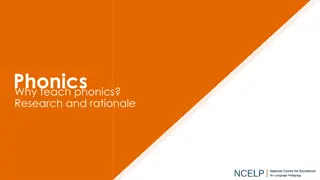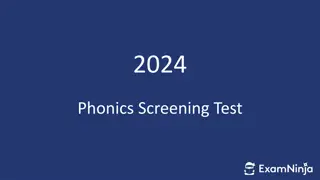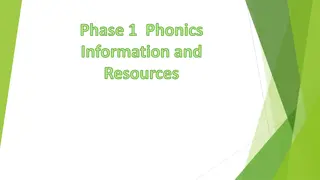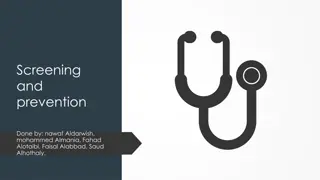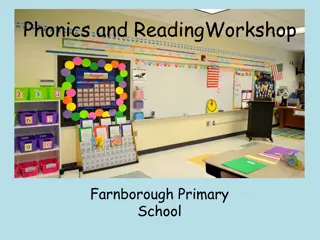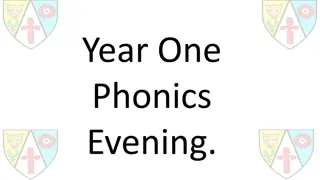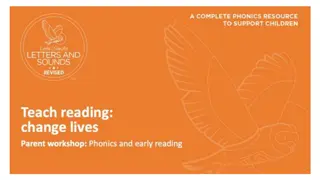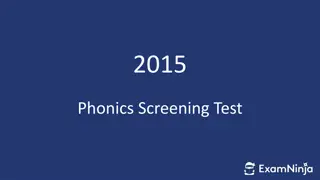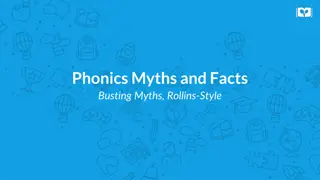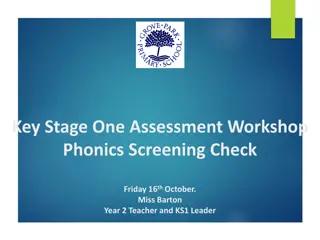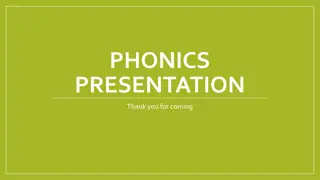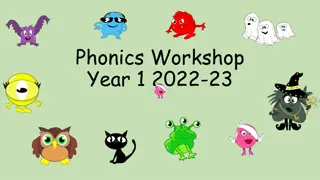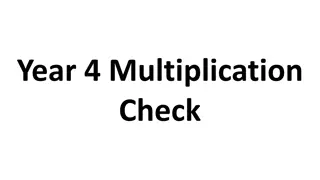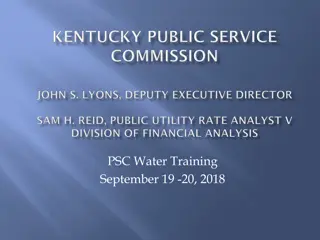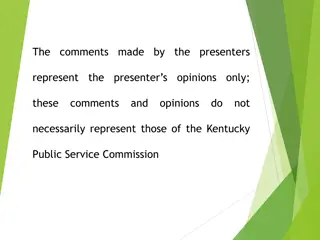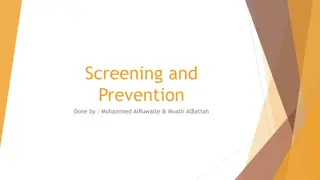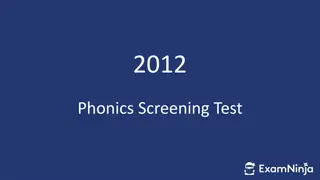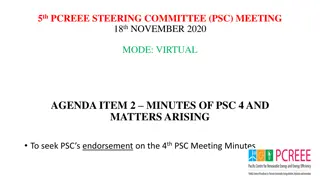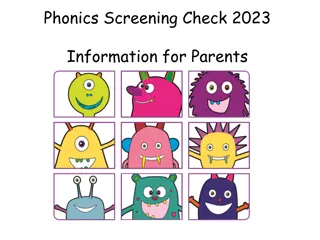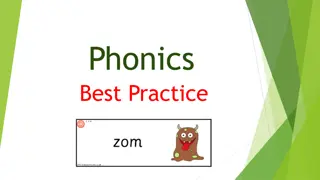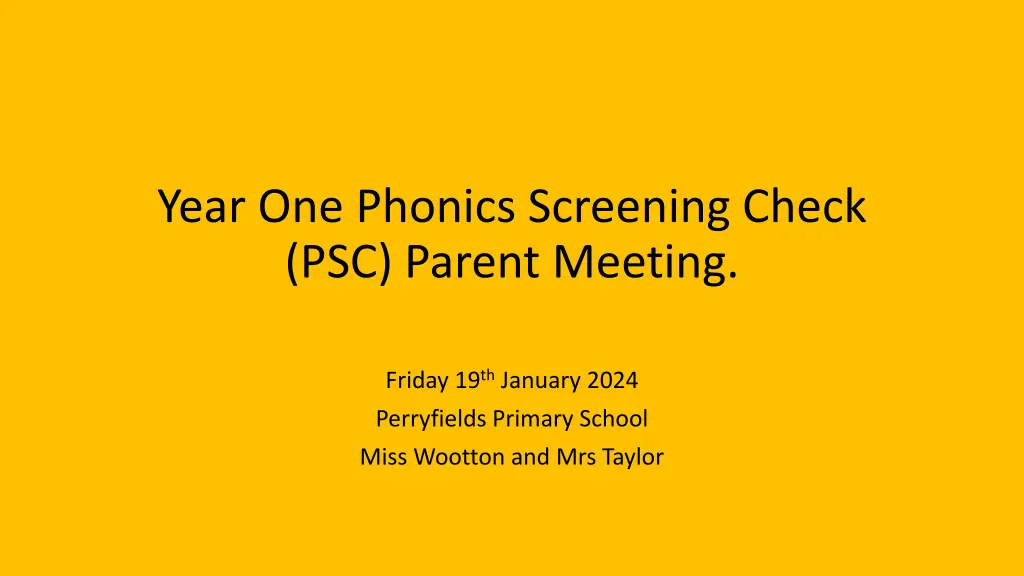
Phonics Screening Check (PSC) Overview
Understand the Phonics Screening Check (PSC) for Year One students, including its purpose, content, administration process, and possible outcomes. Discover how to prepare for the check and what support is available for children who may need it.
Uploaded on | 2 Views
Download Presentation

Please find below an Image/Link to download the presentation.
The content on the website is provided AS IS for your information and personal use only. It may not be sold, licensed, or shared on other websites without obtaining consent from the author. If you encounter any issues during the download, it is possible that the publisher has removed the file from their server.
You are allowed to download the files provided on this website for personal or commercial use, subject to the condition that they are used lawfully. All files are the property of their respective owners.
The content on the website is provided AS IS for your information and personal use only. It may not be sold, licensed, or shared on other websites without obtaining consent from the author.
E N D
Presentation Transcript
Year One Phonics Screening Check (PSC) Parent Meeting. Friday 19thJanuary 2024 Perryfields Primary School Miss Wootton and Mrs Taylor
What is the Phonics Screening Check (PSC)? Every year, children in Year One participate in the Phonics Screening Check, which is a statutory assessment. This usually takes place in June, within school time. The purpose of the assessment is to check your child s phonetic knowledge/learning, against the national curriculum. It is also designed to provide teachers with information on how your child is progressing in phonics. It is a good indication to identify whether your child requires additional support with regards to their Phonics learning, to ensure that they can maintain a good level of skill.
What does the PSC contain? The Phonics Screening Check contains a total of 40 words, that are divided into two sections of 20 words. Therefore, the maximum score that can be achieved is 40 marks. The current pass rate of the screening check is 32 out of 40. Both sections of the check contain a mixture of real words and words that we refer to as pseudo-words . Pseudo-words are words that we are able to phonetically decode (so sound out and blend), but are not actual words with an associated meaning. There is a question as to why pseudo-words are included within the check, when they are not real words. They are included, specifically to assess whether your child is able to successfully decode a word, demonstrating their phonics skills and knowledge. As practitioners, we do prepare the children for the appearance of pseudo-words . We teach the children that pseudo-words will have an image of an alien or creature next to it so that they understand that it is not a real word.
How will the check be carried out? The Phonics Screening Check will be administered by your child s teacher, on a one-to-one basis. It will take place in a quiet environment and away from distractions. Before the start of the test, there will be some practice words for the children to have a go at, to help familiarise them with the activity. It should also provide the children with some less difficult words to help ease the children into the screening check.
Results As a school, we will have access to the children's results and this will allow us to identify if there are any pupils who may need further support with their phonics learning. If your child does not pass the Phonics Screening Check, please do not worry! There will be another opportunity for them to re-take the Phonics Screening Check when they are in Year Two. In preparation for this, support will be put into place to ensure that your child will receive the assistance that they need to help them further.
How to prepare for the PSC Within school and daily phonics lessons, children will be taught the phonetic skills that they will require to help them access the screening check. To assist further, it would be beneficial to encourage your child to read as much as possible when they are at home. During the check, they are allowed to sound out to then blend the words, therefore letting the children know that they can do so when they are finding it tricky to read a particular word is also helpful, when they are reading with you at home.
Any Questions? Please feel free to ask us any questions that you may have. You are also welcome to have a think and contact myself, Mrs Taylor or Miss Riley if you have any further questions regarding the Phonics Screening Check. Thank you for your time and continued support.

